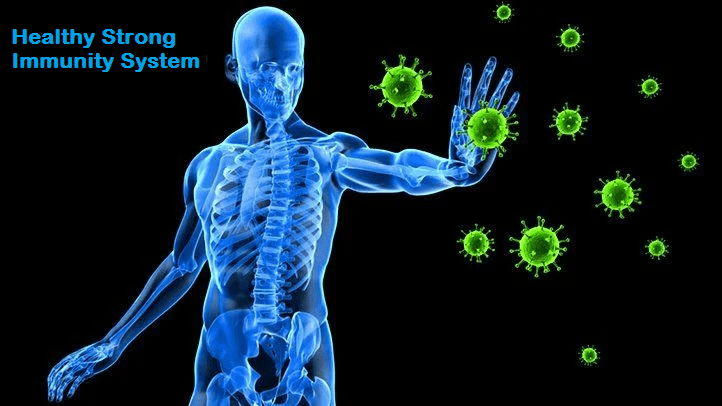A strong immune system acts as a defense mechanism against pathogens, viruses, bacteria, and other harmful invaders that can cause illness and infection in our bodies. A healthy immune system also helps reduce the severity of symptoms when we get sick.
Additionally, a strong immune system plays an important role in overall longevity and quality of life. Studies have shown that individuals with stronger immune systems tend to live longer and experience fewer chronic illnesses. A robust immune system helps fight off infections before they can cause lasting damage or lead to more serious conditions.
Finally, a strong immune system is crucial during a pandemic or outbreak. Those with compromised or weakened immune systems are at greater risk for illness and complications with dangerous pathogens circulating within communities. By keeping our immune systems healthy through proper nutrition, exercise, sleep habits, stress management techniques, and vaccination when available, we can help protect ourselves from illness now and in the future.
Factors that deteriorate the immune system
Several factors can weaken the immune system, making it less effective in protecting the body against diseases and infections. One of these factors is chronic stress, which increases the production of cortisol hormones that suppress the immune response. This suppression weakens the ability of white blood cells to fight off pathogens, leaving individuals vulnerable to illnesses.
A diet lacking essential vitamins and minerals can limit the production of immune cells or reduce their effectiveness in fighting diseases. For example, a deficiency in vitamin C may lead to a weakened immune system since this vitamin plays an essential role in producing white blood cells that fight infections.
Finally, lack of sleep can also weaken immunity since it deprives the body of restorative processes necessary for optimal health. When we sleep, our bodies release cytokines – inflammatory molecules fighting off infection and inflammation – which help strengthen our defense mechanisms against disease-causing agents. With enough sleep or restful sleep patterns, these cytokines are produced more effectively and at all, weaken our immunity over time.
The Role of Vaccines in building immunity
Vaccines build immunity by stimulating the body’s natural defense against infectious diseases. Once a vaccine is administered, it triggers an immune response that produces antibodies and memory cells that can recognize and attack specific pathogens. By doing so, vaccines protect against various illnesses, including measles, mumps, rubella, polio, influenza, and many others.
In addition to protecting individuals who receive them, vaccines also contribute to the development of herd immunity. This occurs when a significant portion of a population becomes immune to disease through vaccination or previous infection. As more people become immune to the illness in question, it becomes more difficult for the pathogen to spread within the community. This reduces the overall risk of infection and protects those who cannot get vaccinated due to age or medical conditions.
Vaccines are essential for building strong immunity at an individual and population level. They are safe and effective tools for preventing illnesses while reducing healthcare costs associated with treating preventable diseases.
wellhealthorganic.com:healthy-strong-immunity-system
Frequently Asked Questions
What are the best foods to boost my immune system?
Eating a balanced and healthy diet can greatly improve your immune system. Foods high in antioxidants, vitamins, and minerals can help strengthen your body’s defenses against diseases. Some examples of these foods include citrus fruits, berries, leafy greens, garlic, ginger, turmeric, nuts, and seeds.
Can exercise improve my immune system?
Yes! Regular exercise is good for your physical health and helps boost your immune system by increasing blood circulation and reducing stress levels. It doesn’t have to be intense workouts either – gentle exercises such as walking or yoga can still benefit your overall health.
How much sleep do I need for a strong immune system?
Getting enough sleep is essential for maintaining a strong immune system. Most adults require 7-9 hours of sleep per night, while children may need more depending on age. Lack of sleep can lead to higher stress levels, weakening the immune response and making it more difficult for our bodies to fight infections and viruses.
Conclusion
In conclusion, a strong and effective immune system is crucial for maintaining good health and fighting infections. A properly functioning immune system can help protect the body from harmful viruses and bacteria. It helps to recognize and destroy foreign invaders that enter the body through various means, such as food, air, or water.
Read Also: wellhealthorganic.com:to-increase-immunity-include-winter-foods-in-your-diet-health-tips-in-hindi
